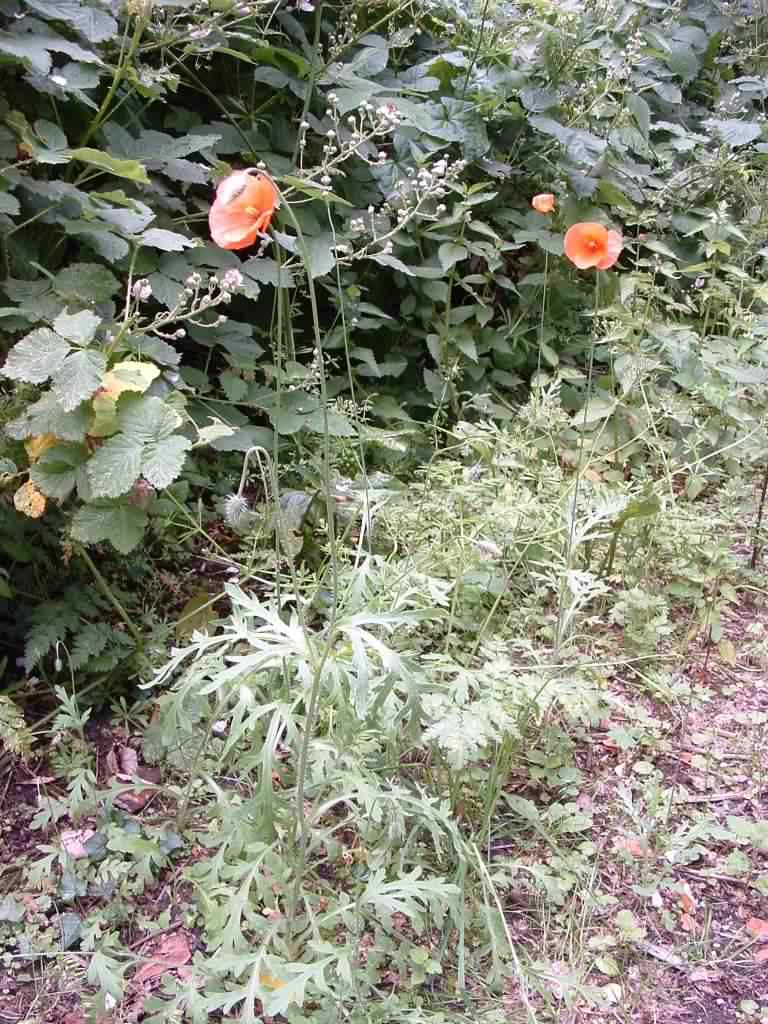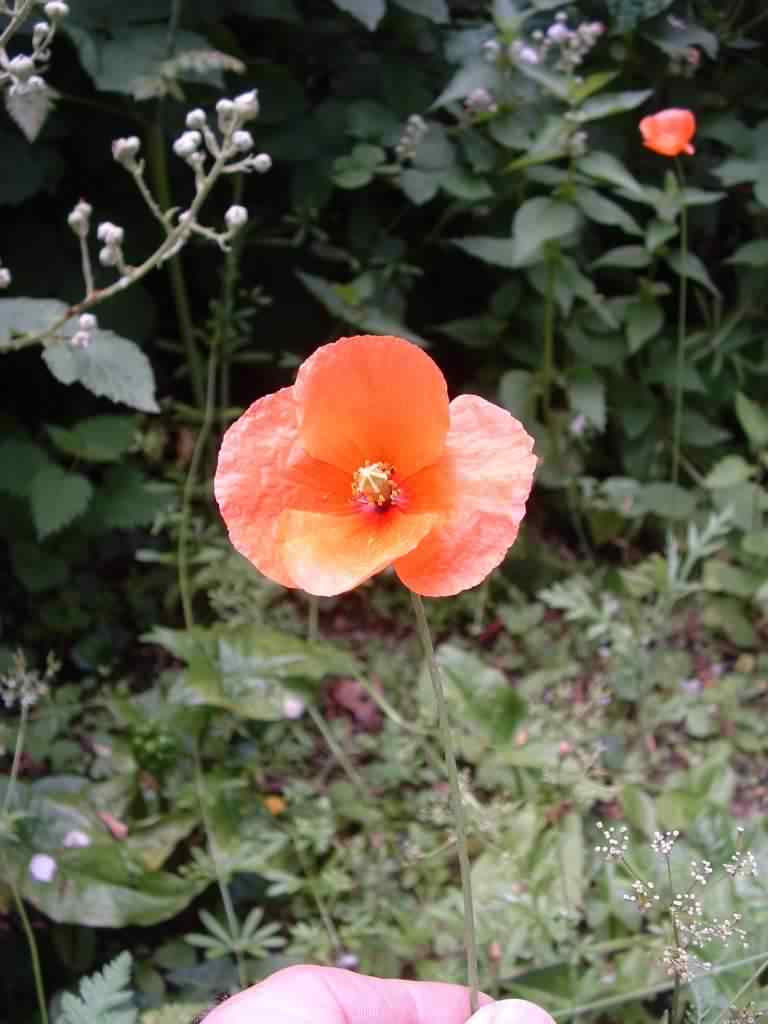
Photos ©2011–
Click any photo for a larger image



Photos ©2011–
Click any photo for a larger image

Icelandic Poppy - Papaver nudicaule
Family - Papaveraceae
Also known as - Yellow Arctic poppy
Synonyms - P. croceum, P. miyabeanum, P. amurense, and P. macounii
This plant is poisonous
Icelandic Poppy is a boreal perennial flowering plant native to Europe, Asia and North America but ironically not Iceland! The plants found in Brickfields Park are orange and so likely to be the cultivar "Champagne Bubbles", probably a garden escapee as they were found very close to a neighbouring property. In the wild the four petaled fragrant flowers are white or yellow, large and borne singly on a thin hairy stem arising from blue–green deeply dissected leaves 5–16cm (2–6in) long similar to Cut–leaved Cranesbill.
White is the dominant colour over yellow for Papaver nudicaule, but there are many cultivars available in orange, salmon, rose, pink, cream and white as well as bi–coloured varieties, all of which are recessive. The flowers mature to a capsule containing numerous and extremely small black seeds. Like other poppies all parts of the plant are poisonous containing toxic alkaloids. Cultivars range from dwarf strains at 25cm (10in) tall with large flowers 10cm (4in) across to larger plants at 50–60cm (20–24in) tall or more with smaller flowers, singly or in racemes in a multitude of colours. They prefer light, well–drained soil and full sun, are hardy but not tolerant of protracted hot weather.
One of the flowers in Linnaeus' flower clock or Horologium Florae, Icelandic Poppy occupies the 7 p.m. closing time.
BCP do not advise or recommend that Icelandic Poppy – Papaver nudicaule is eaten or used as an herbal remedy. Various alkaloids are present in all parts of the plant and could be potentially poisonous to pets horses, cattle and sheep if eaten in large quantities.
Site design ©1999– Brickfields Country Park - Privacy -